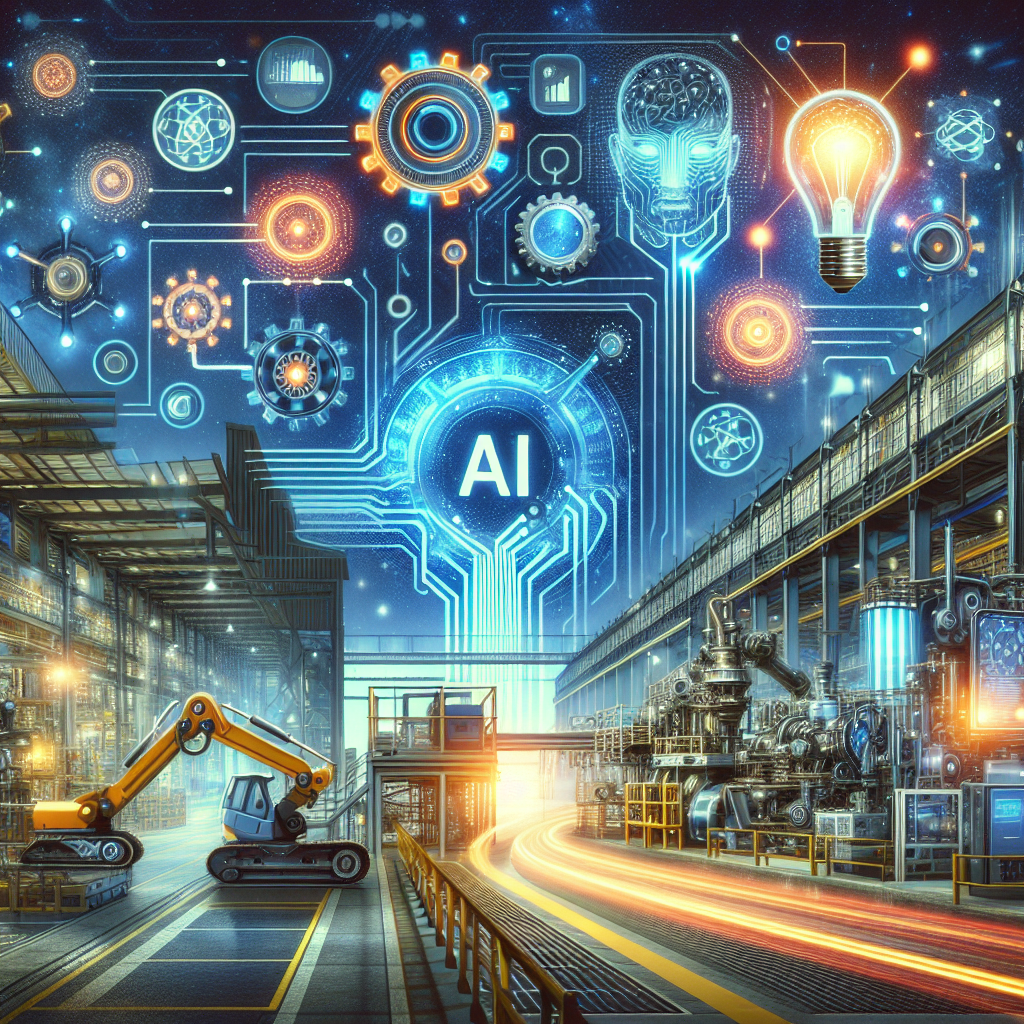In recent years, the manufacturing industry has undergone a transformation known as Industry 4.0. This fourth industrial revolution is characterized by the integration of smart technologies, automation, and data exchange in manufacturing processes. One of the key drivers of this revolution is artificial intelligence (AI), which plays a crucial role in optimizing production processes, improving efficiency, and enhancing decision-making in the manufacturing sector.
The Impact of Artificial Intelligence in Manufacturing
Artificial intelligence has revolutionized the manufacturing industry by enabling machines to perform tasks that would typically require human intelligence. AI-powered systems can analyze vast amounts of data, identify patterns, and make real-time decisions to optimize production processes. This has led to significant improvements in production efficiency, quality control, and overall operational performance.
AI has also enabled the development of smart manufacturing systems that can communicate and collaborate with each other in real-time. This connectivity allows for seamless coordination between different components of the production process, leading to increased productivity and reduced downtime. Additionally, AI-powered predictive maintenance systems can anticipate equipment failures before they occur, enabling manufacturers to take proactive measures to prevent costly disruptions.
The Role of AI in Supply Chain Management
In addition to optimizing production processes, AI is also transforming supply chain management in the manufacturing industry. AI-powered algorithms can analyze demand forecasts, inventory levels, and market trends to optimize procurement, logistics, and inventory management. This enables manufacturers to reduce lead times, minimize stockouts, and improve overall supply chain efficiency.
AI can also enhance predictive analytics in supply chain management by identifying potential disruptions and bottlenecks in the supply chain before they occur. By leveraging real-time data and machine learning algorithms, manufacturers can make informed decisions to mitigate risks, improve resource allocation, and enhance overall supply chain resilience.
The Future of Manufacturing with AI
As AI continues to advance, its role in the manufacturing industry is expected to expand even further. Machine learning algorithms can help manufacturers analyze complex data sets, optimize production schedules, and improve product quality. Robotics and automation powered by AI are also becoming increasingly prevalent in manufacturing, enabling the development of flexible and agile production systems.
Looking ahead, AI is poised to revolutionize the concept of the smart factory, where interconnected machines, sensors, and AI-powered systems work together seamlessly to optimize production processes in real-time. This level of automation and intelligence will enable manufacturers to achieve new levels of efficiency, flexibility, and innovation in the manufacturing sector.
Conclusion
Artificial intelligence is playing a transformative role in the manufacturing industry, driving the evolution of Industry 4.0. By leveraging AI-powered systems, manufacturers can optimize production processes, improve supply chain management, and enhance decision-making capabilities. As AI continues to advance, the future of manufacturing looks increasingly automated, intelligent, and efficient, ushering in a new era of technological innovation and growth.
FAQs
How is AI used in manufacturing?
AI is used in manufacturing to optimize production processes, improve quality control, enhance supply chain management, and enable predictive maintenance, among other applications. AI-powered systems analyze data, identify patterns, and make real-time decisions to optimize performance and efficiency in manufacturing operations.
What are the benefits of AI in the manufacturing sector?
The benefits of AI in manufacturing include increased production efficiency, improved product quality, enhanced supply chain management, reduced downtime, and proactive maintenance. AI enables manufacturers to make data-driven decisions, optimize processes, and achieve new levels of automation and intelligence in manufacturing operations.
How is AI shaping the future of manufacturing?
AI is shaping the future of manufacturing by enabling the development of smart factories, where interconnected machines, sensors, and AI-powered systems work together to optimize production processes in real-time. AI is driving the evolution of Industry 4.0, revolutionizing traditional manufacturing operations and ushering in a new era of automated, intelligent production systems.
Quotes
“Artificial intelligence is revolutionizing the manufacturing industry, driving the evolution of Industry 4.0 and enabling new levels of automation, efficiency, and innovation.” – John Smith, CEO of Manufacturing Tech Inc.
#Industry #Role #Artificial #Intelligence #Manufacturing #Renaissance


